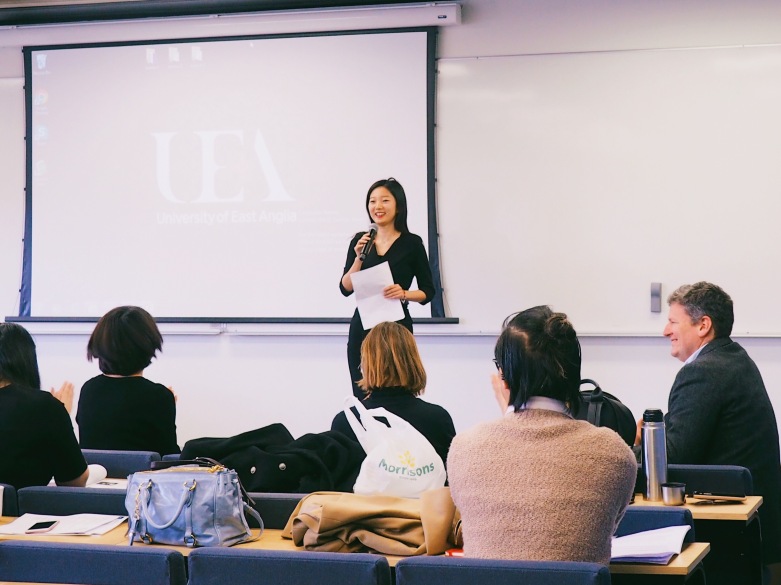2017 UK-China Media and Cultural Studies Association Biennial Conference
11th April 2017, University of East Anglia, Norwich
The television industry in China has experienced a process of marketisation, diversification, de-ideologisation, and entertainmentisation ever since media reforms of the late 1970s. Resulting from the combined pressure of continued media censorship and the rise of media rating systems, entertainment TV, a politically safe and profitable genre, has become a new avenue to boost ratings and increase advertising revenues. A well-known example of the ‘gold rush’ for Chinese entertainment TV is Happy Camp that debuted on Hunan Satellite TV (HSTV) in July 1997, which heralded the dawn of a mass entertainment era. In the following years, A range of genres flourished, such as game shows Lucky 52, reality show Perfect Holiday, entertainment talk show Super Interview, talent shows Dream China, dating programme If You are the One, etc. The rise of digital media offers further channels for audience/user engagement, participation and interactivity, and enhances the multi-screen viewing experience. This success, however, has not been welcomed by everyone. While the government endorses the marketization of television industry through entertainment programmes at the same time it issued an order limiting TV channel from broadcasting too much entertainment programs since July 2011. From within the academic community, concern has been raised about the originality of TV production in China. Scholars comment that the current entertainment TV shows rely heavily on importing or cloning the Western formats, and such ‘localisation’ practice does not foster the creativity within the Chinese TV industry.
2017 marks the 20th year of the popularisation of entertainment TV in China. This conference aims to offer a platform for researchers in media and cultural studies to share insights about the history and future of entertainment TV in China and foster research networks. We would like to draw contributions concerning, but not limited to, the following topics:
• The political economy of entertainment TV in China: the interplay between the state, the market, and the public;
• Genre, format, and spectacle in entertainment TV in China;
• Audience studies and Fandom Studies of entertainment TV;
• Digital media and entertainment TV;
• Gender, Sexualities, and Popular Culture;
• Entertainment TV franchise, localisation of content and creativity;
• Globalisation and the preservation of Chinese cultural identities;
• Censorship, regulations and journalism;
• New approaches and methodologies in researching entertainment TV.
Invited speakers include Dr. Malcolm Mclaughlin, Dr. Sanna Inthorn, Dr. Yan Wu, Dr. Jinghan Zeng, Dr. Patricia Prieto-Blanco, Po-Han Lee, and Tianyang Zhou.
2017年4月11日,英中媒体与文化研究学会第二届年会在英国东英吉利亚大学举行. 来自世界各地的媒体研究学者们齐聚英国诺维奇, 展开了一场别开生面的学术研讨会议. 本次会议的主题是: 中国娱乐电视发展20年回顾, 重点研究和探讨中国电视媒体与娱乐节目的历史, 现状与发展. 本次会议在学会副主席刘宇昕的主持下拉开帷幕, 她发表了开幕致辞和会议日程安排. 紧接着是学会主席周天杨的精彩发言. 在两位主席的精彩演讲之后, 东英吉利亚大学文学, 媒体与美国研究的院长 Dr Malcolm Mclaughlin 和电影电视和媒体研究学院的 Dr Sanna Inthorn代表学院发表了会议欢迎致辞.
本次会议分为三个讨论组, 分别为: Popular Culture & TV, Reality TV: An Empirical Perspective 以及 Globalisation, Transformation, and Technologies. 相关领域的学者们分别进行了学术演讲. 值得一提的是, 本次会议中设置了一个关于”学术出版” 的工作坊, 四位经验丰富的专家: Dr. Jinghan Zeng (曾敬涵) , Dr. Patricia Prieto-Blanco, Dr. Po-Han Lee, and Dr. Tianyang Zhou (周天杨) 分别为大家从杂志编辑者和学术合作等角度介绍了学术出版需要注意的相关事项.最后, 会议在 Dr. Yan Wu (吴燕) 的结语中落下帷幕。吴燕教授总结了本次会议的内容和亮点, 为会议的举办画上了圆满的句号.




